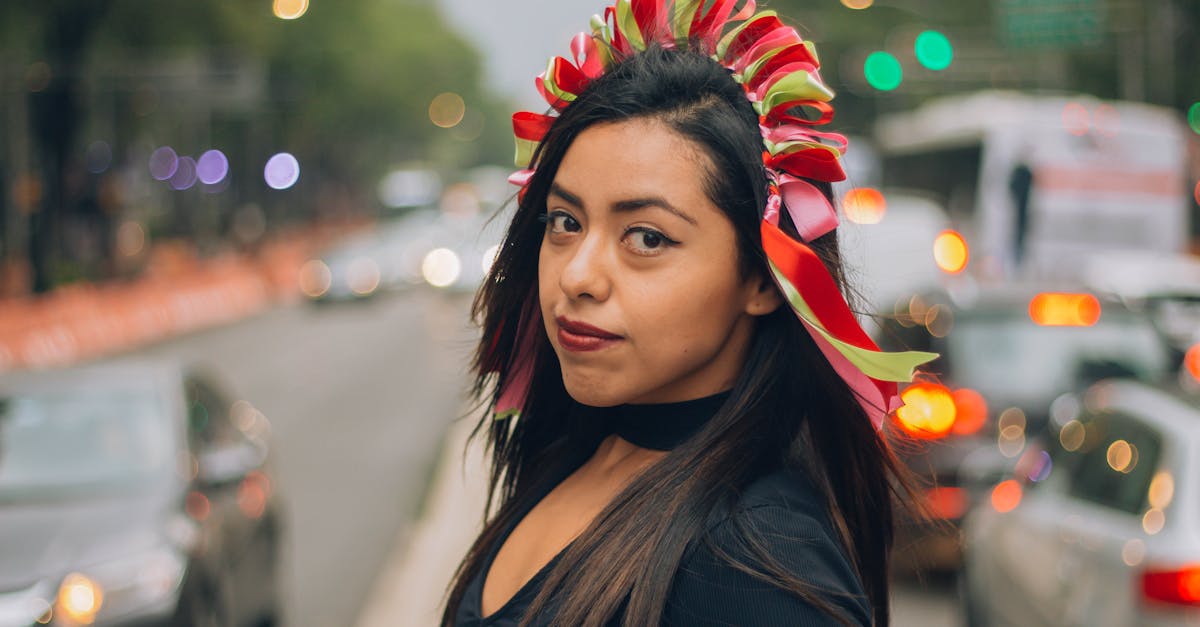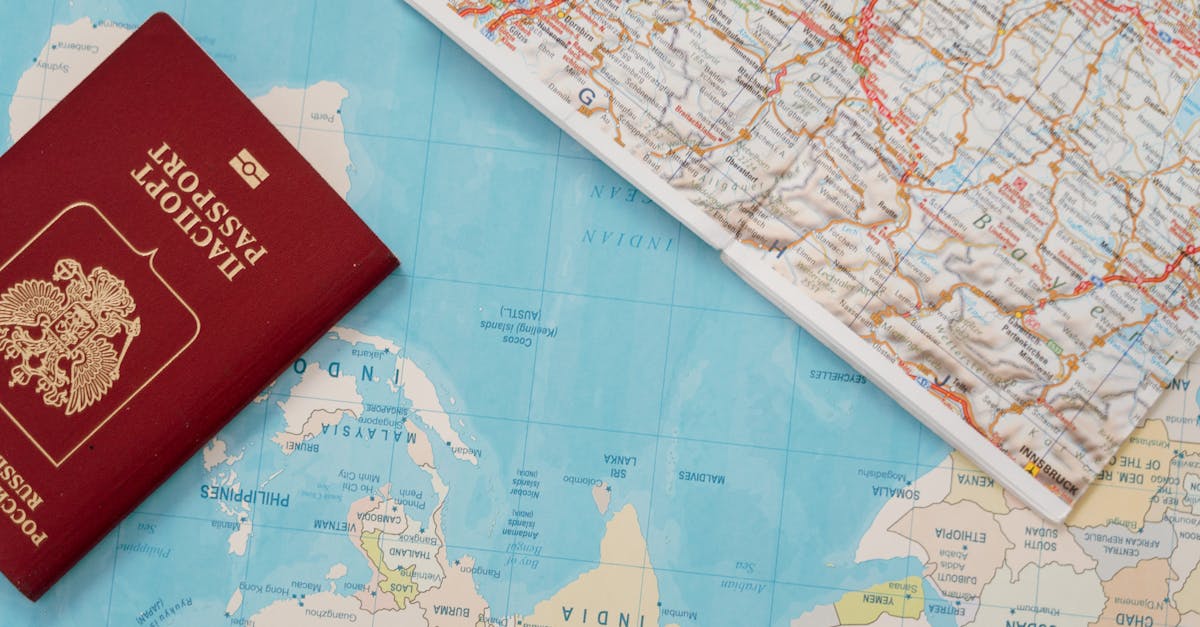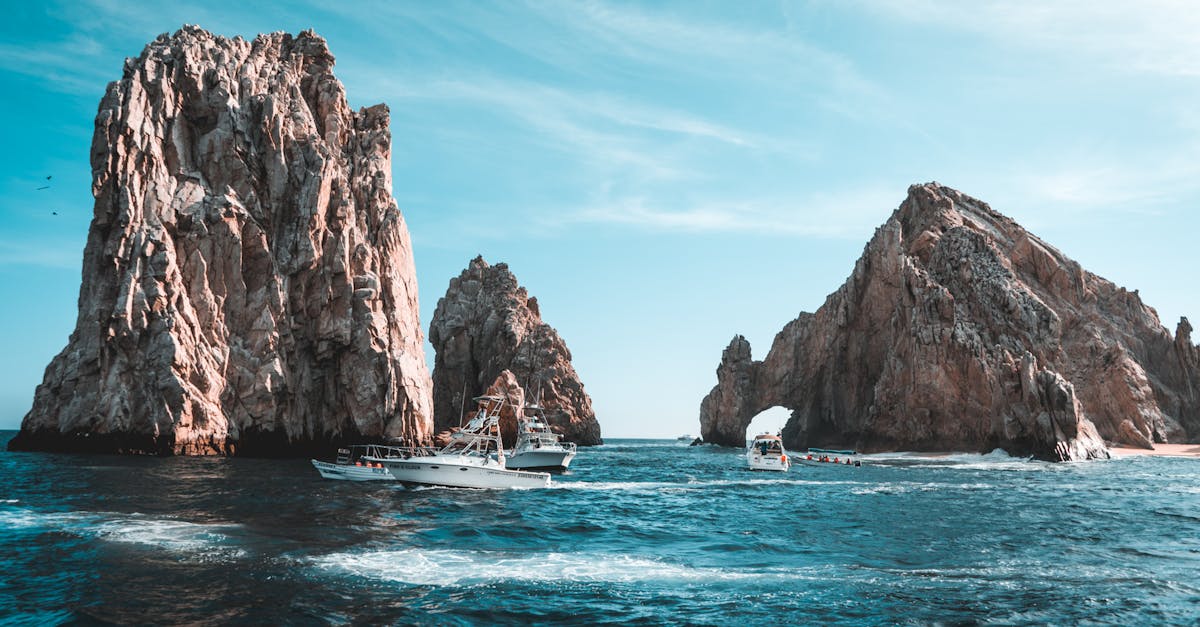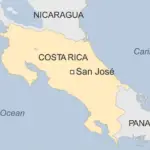Moving to a new country can be a daunting task. For those considering Mexico as their new home, the process can feel overwhelming. Where should you live? What is the cost of living? What are the visa requirements? These are just some of the questions that may come to mind.
But fear not! This guide will provide you with essential tips and tricks for a smooth transition to life in Mexico. From the best places to live for expats, to retirement options, cultural insights, and visa requirements, we’ve got you covered. Whether you’re looking to retire in paradise or simply seeking an adventure, this guide will help you navigate your way through the process of moving to Mexico.
Best Places to Live in Mexico for Expats
Mexico is a beautiful country with a rich culture, warm climate, and friendly people. It’s no surprise that many expats choose to call this country home. Mexico has something to offer everyone, whether you’re looking for a laid-back beach lifestyle or a bustling city atmosphere. Here are some of the best places to live in Mexico for expats:
Cancun
If you’re looking for the ultimate beach lifestyle, Cancun is the place to be. Located on the coast of the Yucatan Peninsula, Cancun boasts crystal-clear waters and pristine white sandy beaches. It’s also home to some of the best resorts in Mexico, making it an ideal destination for retirees who want to live it up in style.
Despite its reputation as a tourist hotspot, Cancun has plenty of residential neighborhoods where expats can settle down and enjoy a quieter pace of life. The city has great healthcare facilities, world-class restaurants and nightlife venues that cater to all tastes.
San Miguel de Allende
San Miguel de Allende is not your typical Mexican city. Located in central Mexico, this colonial town boasts narrow cobblestone streets lined with colorful buildings adorned with wrought-iron balconies and flower-filled courtyards.
The city has become increasingly popular among expats over recent years because of its low cost of living compared with other parts of the country. San Miguel de Allende also offers an excellent quality of life thanks to its vibrant arts scene and rich cultural heritage.
Puerto Vallarta
Puerto Vallarta is another popular destination among retirees who are seeking sunnier climes without sacrificing big-city amenities. This charming coastal town has everything you could want in a retirement destination, from beautiful beaches to excellent healthcare facilities and services. Puerto Vallarta also has a thriving restaurant scene that caters to all tastes, as well as a thriving arts and cultural scene.
The town is known for its friendly people and community-oriented atmosphere, providing an ideal environment for expats looking to build their new life in Mexico. Whether you’re looking for a condo with ocean views or a hillside villa surrounded by lush tropical gardens, Puerto Vallarta has something to offer everyone.
Overall, Mexico is an excellent destination for expats who are looking for adventure, rich culture, and warm weather. The best places to live in Mexico provide retirees with ample opportunities for exploration and relaxation alike. Whatever your priorities may be, you’re sure to find the perfect place to call home in this vibrant country.
Retirement in Mexico: The Ultimate Guide
Retiring in Mexico is an excellent option for those seeking an affordable, enjoyable lifestyle. With its warm weather, friendly people, and beautiful landscapes, Mexico offers endless opportunities for relaxation and adventure. In this section, we’ll explore everything you need to know about retiring in Mexico.
Cost of Living
The cost of living in Mexico is significantly lower than that of most Western countries. Retirees can enjoy a comfortable lifestyle on a budget that’s much lower than what they’re used to. Housing costs vary depending on where you choose to live, but in general, they’re quite affordable. Other expenses such as food and healthcare are also cheaper compared to the US or Canada.
In addition, retirees can take advantage of several programs designed specifically for them by the Mexican government. For example, INAPAM is a program that offers discounts on goods and services for people over 60 years old.
Healthcare
Mexico has both public and private healthcare systems with highly qualified medical professionals. Private healthcare may be more expensive but provides access to advanced medical treatments and facilities. Public healthcare is affordable but often overcrowded with long wait times.
To access healthcare services as a retiree in Mexico, you can enroll in the national health insurance program – Seguro Popular or IMSS (Mexican Social Security Institute). Private health insurance is also available at very reasonable rates compared to other countries.
 Cultural Experience
Cultural Experience
Mexico offers retirees an enriching cultural experience with its vibrant art scene, music festivals, traditional markets (tianguis), museums showcasing ancient civilizations like Aztec or Mayan cultures and colonial architecture from Spain’s influence during Spanish conquests across Latin America which created a unique blend of Indigenous and European heritage. Also, retirees can enjoy Mexican food which is world-renowned for its spicy flavors and varied ingredients.
Retiring in Mexico offers a wide range of benefits to retirees seeking a relaxing and enjoyable lifestyle. With affordable living costs, high-quality healthcare, and rich cultural experiences – it’s easy to see why so many people choose this beautiful country as their retirement destination.
Mexican Culture: A Beginner’s Guide
Mexico is a diverse country with a rich culture that is reflected in its art, music, dance, cuisine, and festivals. Understanding the customs and traditions of Mexico is essential for anyone planning to relocate to the country. Here are some key aspects of Mexican culture that expats should know:
Family Values and Relationships
Family values are highly valued in Mexican culture. Family members are expected to support each other emotionally and financially. The concept of “familismo” refers to the importance of family above all else. It’s common for extended families to live together or in close proximity.
Respect for elders is also an important aspect of Mexican culture. Older people are highly respected and often consulted for advice by their younger family members.
In social situations, Mexicans tend to be warm and friendly towards others. They value personal connections and relationships over business transactions.
Religion
The majority of Mexicans identify as Roman Catholic, but there is also a growing Protestant population as well as smaller communities practicing other religions like Judaism or Buddhism.
Catholicism plays a significant role in Mexican culture, with many religious festivals throughout the year such as Dia de los Muertos (Day of the Dead) which is celebrated on November 1st-2nd.
Religion also influences daily life in Mexico with many people attending mass weekly or even daily. Visitors should be respectful when visiting places of worship or participating in religious events.
Cuisine
Mexican cuisine is world-renowned for its bold flavors, vibrant colors and use of fresh ingredients such as chili peppers, tomatoes, avocados and beans among others.
The country’s national dish is mole, a rich sauce with a hint of chocolate that typically accompanies meat dishes. Tacos, tamales, enchiladas and quesadillas are also popular Mexican dishes.
It’s important to note that Mexican cuisine varies greatly by region. Coastal regions tend to specialize in seafood dishes while northern regions are known for their beef dishes.
Exploring the local cuisine is an enjoyable way to immerse oneself in Mexican culture and understand the country’s diversity.
Cost of Living in Mexico: Everything You Need to Know
Mexico is known for its affordable cost of living, especially when compared to other popular expat destinations such as the United States or Europe. However, it’s still important to understand the details of the cost of living in Mexico before you make a move. Here are the key factors that determine your costs:
Housing Costs
The cost of housing in Mexico varies depending on which city or region you choose to live in. Larger cities such as Mexico City or Cancun can have higher housing costs, while smaller towns and villages may be more affordable. In general, renting an apartment in a major city can cost anywhere from $400 to $1,000 per month, while buying a home can range from $50,000 to over $1 million depending on location and size.
When considering housing costs, it’s also important to factor in utilities such as electricity, water and gas. These bills can range from $50-$150 per month depending on usage and location.
Food Costs
Mexico is known for its delicious and affordable cuisine. Eating out at local restaurants is very inexpensive – you can get a meal for around $5-$10 USD at most places. Cooking at home is also affordable with groceries costing anywhere between $150-300 USD per month depending on your needs and location.
If you prefer organic or imported food products, expect to pay significantly more than local produce and goods.
Transportation Costs
The transportation system in Mexico is well-developed with numerous options available including buses, taxis and ride-sharing services such as Uber. The cost of public transportation varies by city but generally ranges from $0.25-$0.50 USD per ride. Taxis and Ubers are typically more expensive but still affordable, costing around $5-$15 USD for a typical city ride.
If you plan to purchase a car in Mexico, the costs can vary significantly depending on the make and model you choose. A small new car can cost anywhere from $10,000-$20,000 USD while a luxury vehicle can cost upwards of $50,000 USD.
In conclusion, the cost of living in Mexico is generally lower than in many other countries. However, it’s important to take into account factors such as housing expenses, food costs and transportation options when determining your budget for living in Mexico. By understanding these costs ahead of time and planning accordingly, you can enjoy an affordable and comfortable lifestyle in this beautiful country.
 Mexican Visa Requirements: How to Get a Mexican Visa
Mexican Visa Requirements: How to Get a Mexican Visa
If you’re planning to move to Mexico, obtaining a visa is one of the most important things you need to do before leaving your home country. There are different types of visas available depending on your nationality, purpose of travel, and length of stay. Here’s what you need to know:
1. Research the different types of visas
When it comes to Mexican visas, there are several types that you can choose from including tourist visas, temporary resident visas, and permanent resident visas. Identify which visa best suits your requirements and make sure you meet the eligibility criteria before applying.
2. Gather all required documents
The documents needed for a Mexican visa application vary depending on the type of visa. Generally, you will be required to submit a valid passport, proof of financial means or sponsorship (such as bank statements or letters from your employer), proof of accommodation in Mexico (such as hotel reservations or rental contracts), and completed application forms.
3. Apply for a Mexican visa
You can apply for a Mexican visa at any Mexican consulate in your home country. Make sure that your application is complete and accurate before submitting it along with all required documents. Processing times may vary depending on the type of visa applied for so be sure to apply well in advance.
A successful visa application will grant you legal entry into Mexico and allow you to enjoy everything this wonderful country has to offer!
 Relocating to Mexico: Tips and Tricks for a Smooth Move
Relocating to Mexico: Tips and Tricks for a Smooth Move
Moving to a new country can be an exciting yet overwhelming experience. Relocating to Mexico is no exception. It helps to have a plan in place, so here are some tips and tricks for making your move to Mexico as smooth as possible.
Research the Area Before You Move
One of the most important things you can do before relocating to Mexico is research the area where you will be living. You should learn about the culture, language, customs, and laws of the area you will be moving to prior to your arrival. This knowledge can make it easier for you to settle in and avoid any unnecessary difficulties or misunderstandings.
In addition, researching neighborhoods online can help give you an idea of what areas are considered safe and affordable for expats. If possible, take a trip or two down before moving and spend some time getting familiar with the town or city that you will call home.
Get Your Paperwork in Order
To relocate successfully to Mexico, ensure that all your paperwork is complete and organized well before leaving your home country. You’ll need everything from visas & permits (temporary vs permanent), passports (yours & family’s), driver’s licenses (which may need translating), birth certificates (yours & family’s) etc.. Ensure all documents are up-to-date with updated translations if necessary. Do not wait until the last minute!
Hire a Reputable Moving Company
Moving internationally requires more planning than just moving around town – it needs logistics handling that only specialized companies know how-to smoothly manage such moves! Look online for reputable international moving companies that specialize in moves from your current location/country to Mexico. They should have lots of experience in the region, equipped with bilingual teams, and offer customs clearance assistance so that your belongings make it through Mexican customs without any delays or surprises.
One important tip when hiring a moving company is to get quotes from more than one company. Compare estimates and choose the company that best meets your needs and budget.
By following these tips, you can help ensure a smooth and successful relocation to Mexico. With proper planning and preparation, you’ll be ready for whatever comes your way once you arrive in this beautiful country with its welcoming culture!
Living in Mexico: Pros and Cons
Pros
Mexico offers a unique cultural experience, with its vibrant art, music, and food scenes. The country also boasts beautiful natural wonders, such as beaches, mountains, and deserts. Furthermore, the cost of living in Mexico is significantly lower than in many Western countries. This means that expats who move to Mexico can enjoy a high standard of living for less money.
In addition to the cultural experiences and lower cost of living, moving to Mexico can also provide a sense of adventure and excitement for those who are looking for a change of pace. Expats can immerse themselves in a new language and make new friends from all over the world. Finally, healthcare is affordable in Mexico compared to other countries allowing expats to get more comprehensive coverage at an affordable rate.
All these factors make it an excellent destination for those looking for an affordable way to retire or live abroad while maintaining a comfortable lifestyle.
Cons
One potential drawback of living in Mexico is crime rates. While some areas are safer than others as long as you take necessary precautions you will be safe but there is still higher crime rates due to drug trafficking organizations operating throughout the country.
The language barrier may also pose challenges for some expats who don’t speak Spanish fluently however many people find that learning Spanish adds greatly to their enjoyment of life abroad.
Another issue that some expats face when moving to Mexico is adjusting to the different culture and social norms. It’s important not only be aware but respectful of local customs including punctuality standards or how loud music should be played at night etc.
In conclusion while there are certainly pros and cons when it comes to living in Mexico overall it’s definitely considered by most foreigners as an inviting place to relocate. The low cost of living, beautiful scenery, and friendly locals are just a few reasons why many expats choose Mexico as their new home.
Immigration to Mexico: What You Need to Know
Types of Visas
If you’re considering immigrating to Mexico, it’s important that you understand the different types of visas available. The most common type of visa is the temporary resident visa, which is valid for up to four years and allows you to live and work in Mexico. Another type is the permanent resident visa, which grants you indefinite residency in Mexico and is ideal for those who plan on staying long-term.
You can also apply for a non-immigrant visitor visa if you plan on staying in Mexico for less than 180 days. This visa doesn’t allow you to work or earn income in Mexico, so it’s mostly used by tourists or those visiting family or friends.
Regardless of which type of visa you apply for, there are several requirements that must be met, including proof of financial solvency and a clean criminal record. It’s important that you consult with an immigration attorney or do thorough research before applying for any type of Mexican visa.
The Application Process
The process for applying for a Mexican visa can be lengthy and complex. Before submitting an application, make sure that all your documents are in order, including your passport and any required forms or certificates. You’ll also need to provide proof of financial solvency and may be required to attend an interview at a Mexican consulate.
In addition to meeting the basic qualifications, each type of visa has its own specific requirements. For example, if applying for a temporary resident visa based on employment, you’ll need a job offer from a Mexican company as well as proof of qualifications such as education certificates or work experience.
It’s crucial that applicants are patient throughout the process and pay close attention to deadlines. Immigration laws can change frequently, so it’s also important to stay up-to-date with the latest requirements and regulations.
Integration into Mexican Society
Immigrating to Mexico means more than just obtaining a visa and moving into your new home. It’s important for individuals to integrate themselves into Mexican society in order to fully experience and appreciate the culture.
One of the best ways to do this is by learning Spanish or improving existing language skills. This will not only help with daily communication but also allow for a deeper understanding and appreciation of Mexican culture. Additionally, participating in local cultural events or joining clubs or organizations can help newcomers establish connections within their community.
Mexico is known for its warm and welcoming culture, which makes integrating into society relatively easy. By embracing the culture and taking initiative to make connections, immigrants can quickly feel at home in their new country.
Moving to Mexico City: What to Expect
If you are planning to move to Mexico City, also known as CDMX, there are a few things you should know before packing your bags and heading south of the border. As one of the largest cities in the world, with over 21 million inhabitants, it can be overwhelming for newcomers. However, with proper preparation and an open mind, living in Mexico City can be a rewarding experience.
The Cost of Living
Mexico City is known for being an affordable place to live compared to other major cities around the world. The cost of living can vary depending on your lifestyle, but in general, things like food, transportation and entertainment are much cheaper than in North America or Europe. That being said, rent prices have been increasing rapidly in some areas due to high demand from expats. It’s important to do your research beforehand and budget accordingly.
One thing that might surprise new residents is how much cash they will need on-hand for day-to-day transactions. Credit cards are not as widely accepted as they are in other countries; many shops and restaurants prefer cash payments.
Culture Shock
Mexico City has a rich history and culture that can be both fascinating and overwhelming for newcomers. From street food vendors selling tacos al pastor on every corner to grand museums housing priceless artifacts from ancient civilizations, there’s always something new to explore.
One cultural difference that may take some adjustment is the concept of personal space. Mexicans tend to stand closer together during conversations than people from other cultures may find comfortable. Additionally, traffic can be chaotic and pedestrian safety is not always a priority for drivers.
Getting Around
Mexico City is notorious for its traffic jams which can make getting around a challenge. However, there are plenty of transportation options available. The Metro is the quickest and cheapest way to get around the city. It’s also important to note that Uber and other ride-sharing apps are widely used in Mexico City and can be a convenient way to navigate the city without having to worry about language barriers or haggling over taxi fares.
Finally, walking is also a great way to see the city up close, especially in areas like La Condesa or Roma where there are plenty of cafes, parks, and shops to explore on foot.
Conclusion
Moving to Mexico can be a fantastic opportunity to experience a new culture, enjoy the beautiful scenery, and meet friendly locals. With the right preparation and research, you can make your move smooth and enjoyable. Whether you are retiring or relocating for work, Mexico offers many benefits that make it an attractive destination for expats. From its low cost of living to its rich history and vibrant cultural scene, there is something for everyone in this amazing country. Embrace the adventure of moving to Mexico with confidence and excitement, knowing that you have all the tools needed to make your transition a success!






